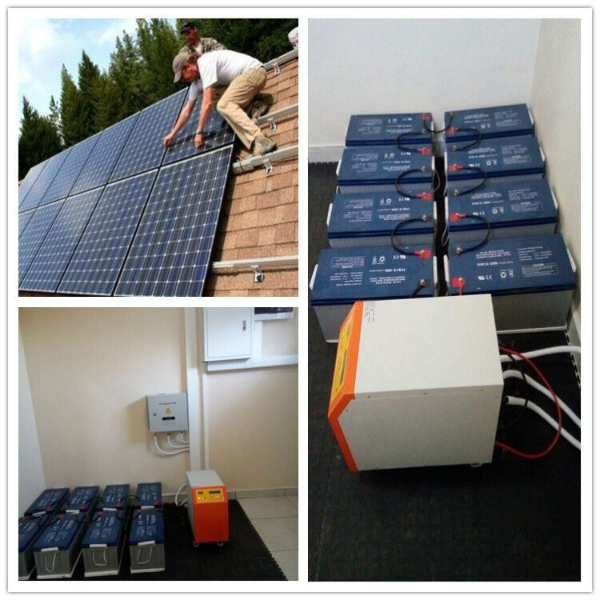Electric vehicles are becoming a more viable option for many car buyers, with nearly a dozen models set to debut by the end of 2024.As the electric vehicle revolution is in full swing, a question keeps popping up: What happens to the batteries in electric vehicles once they wear out?
Electric vehicle batteries will slowly lose capacity over time, with current EVs losing on average about 2% of their range per year.After many years, the driving range may be significantly reduced.Electric vehicle batteries can be repaired and replaced if a single cell within the battery fails.However, after years of service and hundreds of thousands of miles, if the battery pack degrades too much, the entire battery pack may need to be replaced.The cost can range from $5,000 to $15,000, similar to an engine or transmission replacement in a gasoline car.
lithium ion solar battery
The concern of most environmentally conscious people is that there is no proper system in place to dispose of these decommissioned components.After all, lithium-ion battery packs are often as long as a car’s wheelbase, weigh close to 1,000 pounds, and are composed of toxic elements.Can they be easily recycled or are they doomed to pile up in landfills?
“Electric vehicle batteries aren’t that hard to get rid of, because even though they’ve outgrown the utility of EVs, they’re still valuable to some people,” said Jack Fisher, Consumer Reports’ senior director of automotive testing.”Demand for secondary batteries is strong. It’s not like your gas engine dies, it’s going to a scrapyard. Nissan, for example, uses old Leaf batteries in its factories around the world to power mobile machines.”
Nissan Leaf batteries are also being used to store energy on California’s solar grid, Fisher said.Once solar panels capture energy from the sun, they need to be able to store that energy.Older EV batteries may no longer be the best choice for driving, but they are still capable of storing energy.
Even if secondary batteries degrade completely after various uses, minerals and elements such as cobalt, lithium and nickel in them are valuable and can be used to produce new electric vehicle batteries.
With EV technology still in its relative infancy, the only certainty is that recyclability needs to be incorporated into the manufacturing process to ensure EVs remain environmentally friendly throughout the life of the product.

Despite concerns about potentially expensive repairs when these batteries are replaced, we don’t count them as a common problem in our exclusive car reliability data.Such problems are rare.
More car questions answered • Should you lower tire pressure to gain traction in snow?• Is the panoramic sunroof safe in a rollover accident?• Is the spare tire expired?• Which cars should be resurrected as electric vehicles?• Are cars with dark interiors real?Getting hotter in the sun?• Should you use a leaf blower to clean the interior of your car?• Are passengers in the third row safe in a rear-end collision?• Is it safe to use seat pads with infants – seat base?
Post time: Feb-26-2022





